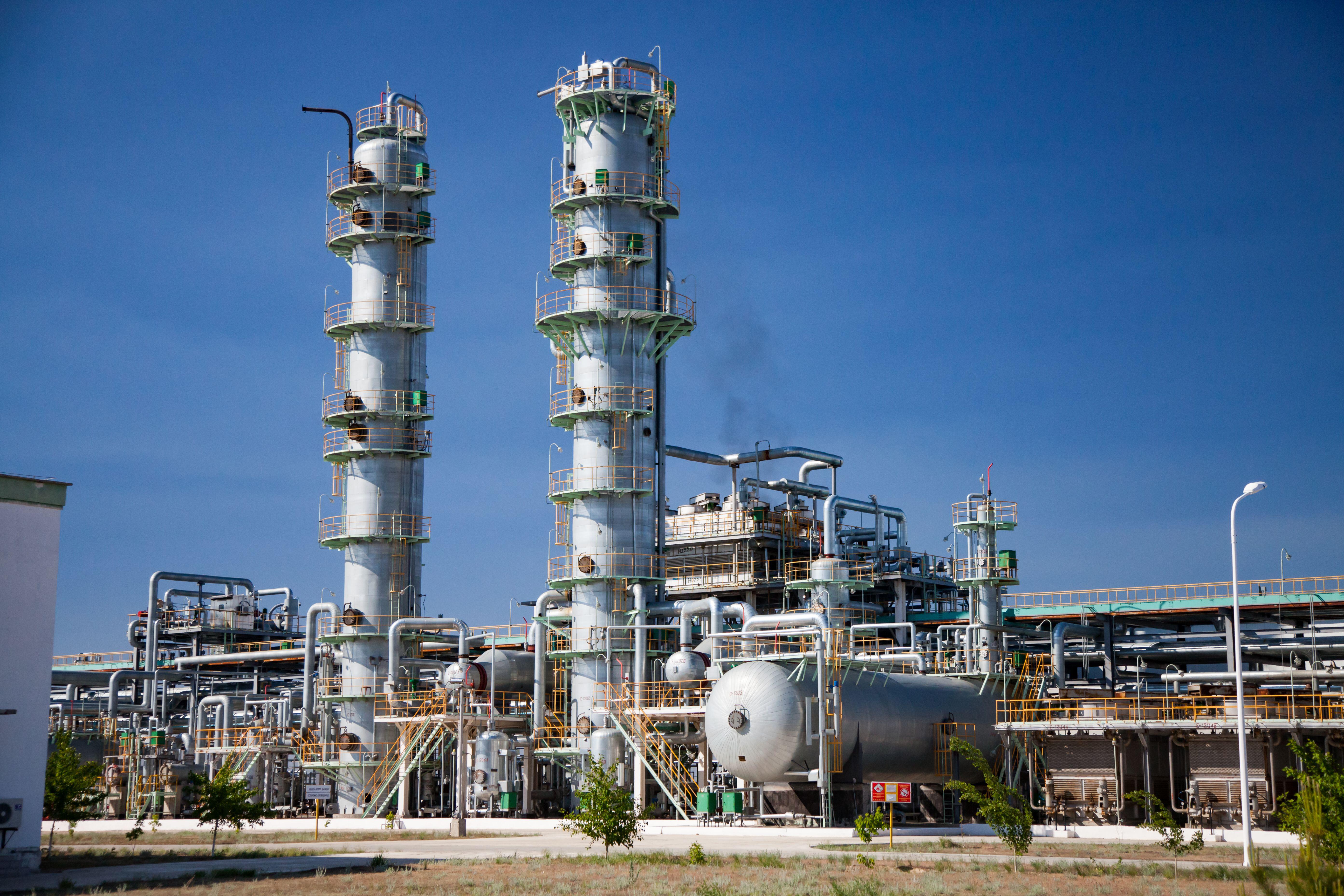NUR-SULTAN
Kazakhstan is developing its petrochemical industry at a rapid pace, building a number of new gas processing plants to meet surging domestic demand for liquefied petroleum gas.
The latest plant will be built in the Mangystau region in western Kazakhstan, following an order by President Kassym-Zhomart Tokayev, who instructed the government to develop a comprehensive investment proposal for the project. Construction is expected to be completed by 2023.
The consumption of liquefied petroleum gas in Kazakhstan has more than doubled over the past three years. In the Mangystau region alone, located 20 kilometres east of the Caspian Sea port of Aktau, more than 90 percent of vehicles use liquefied gas.
The main supplier of liquefied gas and motor fuel in the region is currently the Kazakh Gas Processing Plant. Built in the Soviet period, its main equipment worn out and the plant is at risk of emergency shutdowns.
“Our talks about petrochemicals, as a rule, go down to two products: polyethylene and polypropylene. I think we need to expand this list, Tokayev told the government. “New enterprises should be created for the processing of oil and gas into finished products for industrial and household purposes, focused on the domestic and foreign markets,” he added.
Earlier this month, Kazakhstan started the construction of a $860 million gas processing plant near its giant Kashagan oil and gas condensate field in the Atyrau region, a project expected to provide a significant boost to the country’s gas processing capability.
The plant will have a capacity of up to 1 billion cubic metres (bcm) per year using gas from Kashagan. It is expected to produce 815 million cubic meters of commercial natural gas, 119,000 tonnes of liquefied gas, 212,000 tonnes of sulphur and 35,000 tonnes of gas condensate. It is scheduled to be commissioned in the fourth quarter of 2023.
The Kashagan field is operated by the North Caspian Operating Company. Other partners in the project include Eni, Exxon Mobil, CNPC, Royal Dutch Shell, Total, Inpex and Kazakhstan’s state energy firm KazMunayGaz. Located in the Caspian Sea field, it is the world’s biggest oil find in decades. The Kashagan field is also one of the world’s most expensive standalone oil projects, costing an estimated $50 billion and taking 13 years to develop before commercial production started in 2016.
Kashagan is the site of another significant project, the country’s first integrated gas chemical complex, with an annual capacity of 500,000 tonnes, scheduled to be commissioned in March 2022. The project is being led by Kazakhstan Petrochemical Industries (KPI) LLP. The total investment is $ 2.6 billion.

